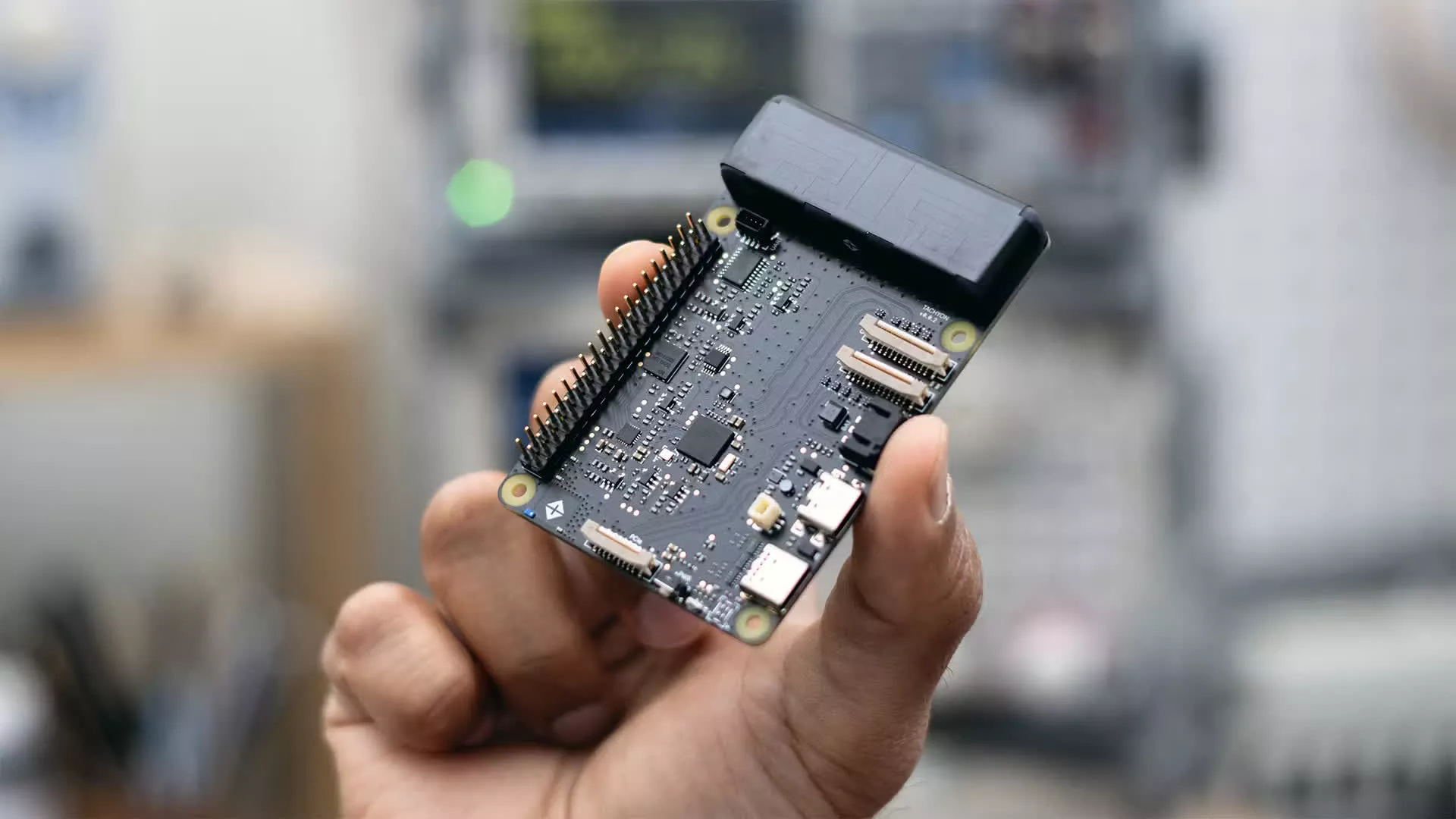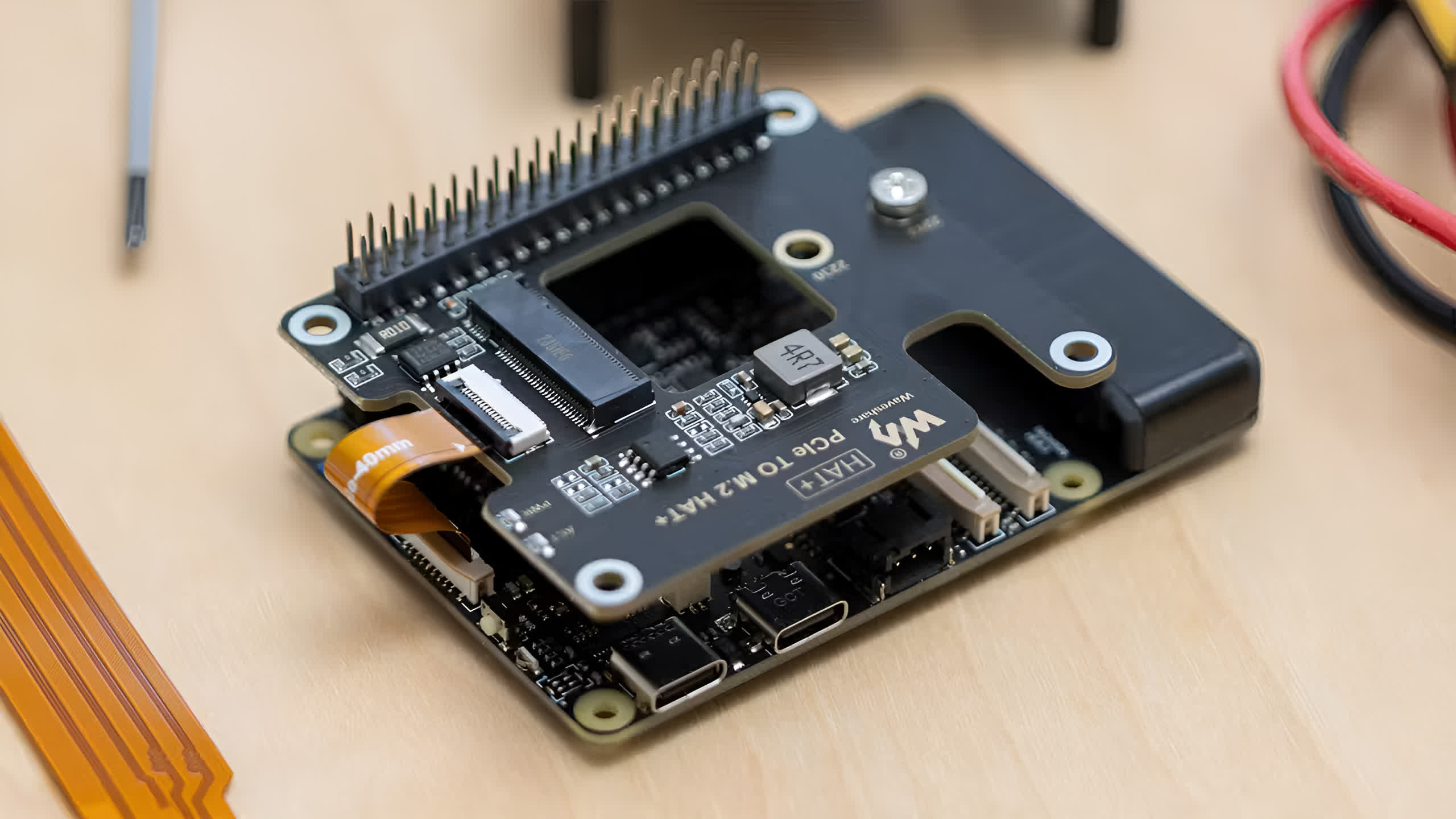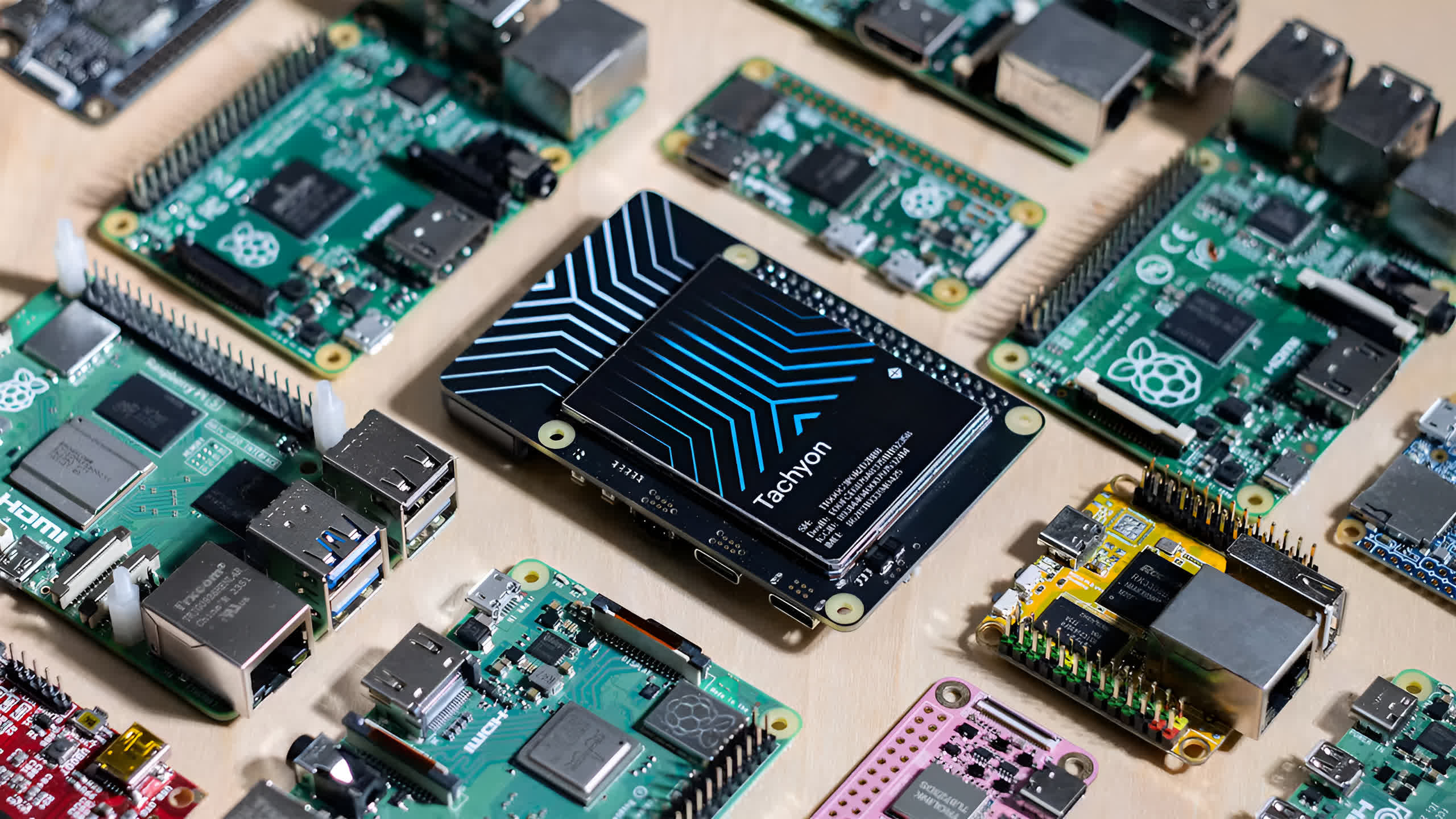In brief: IoT startup Particle looks geared to shake up the single-board computer market with their latest creation – the Tachyon. This credit card-sized Linux computer packs the kind of serious hardware normally found in mid-range smartphones. You get an 8-core Qualcomm chip, 5G cellular connectivity, Wi-Fi 6E, and dedicated AI acceleration.
The star of the show is Qualcomm's Snapdragon QCM6490 system-on-chip (it powers the Fairphone 5). This octa-core processor features Kryo 670 CPU sporting four high-performance Cortex-A78 cores clocked up to 2.7GHz, plus four power-efficient Cortex-A55 cores handling the lighter workloads. There's also an Adreno 643L GPU on board to drive 4K displays if needed. All of this is topped by a dedicated 12 TOPS AI engine for hardware-accelerated machine learning inferencing.
Particle likely chose the QCM6490 chip in part because Qualcomm classifies it for Industrial IoT applications and guarantees 10-year lifetime availability. This long lifespan provides assurances for companies looking to build IoT solutions around the platform.

Tachyon also offers plenty of connectivity options. It supports the latest Wi-Fi 6E standard for high-speed, low-latency wireless. But the headliner is integrated 5G with LTE fallback for cellular data virtually anywhere. Combine that with 4GB RAM and 64GB of fast UFS storage, and you've got a fairly potent little machine.
On the I/O front, Tachyon provides a solid array of ports and interfaces. There are two USB-C sockets including one with DisplayPort output. You'll find ribbon connectors for 4-lane CSI cameras up to 25MP and DSI display output. Plus, it's got a couple of PCIe Gen 3 ports for expansion. In a nod to the maker community, it retains GPIO compatibility with Raspberry Pi HAT add-ons.
On the software end, the SBC boots into Ubuntu Linux. That means you get a fully-fledged desktop/server environment with ample developer tools and libraries.
Of course, Tachyon comes with support for Particle's edge-to-cloud infrastructure as well, which includes everything you need to deploy an IoT device: device management, OTA software updates, connectivity management, data automation, you name it.
As for use cases, this is what the startup has to say: "Particle's customers use our platform to do everything from monitoring equipment in dentists' offices to searching for methane escapes on an oil site to tracking lobster boats off of the coast of Maine to providing access controls to gyms and breastfeeding stations. IoT isn't just about home automation – it's everywhere, in a thousand places you wouldn't expect."

Power flexibility is another selling point. You can use a USB-C or DC adapter, or opt for battery power using Particle's 18650 cell options with up to 12,200mAh capacity. You can also add your own compatible packs via the onboard 3-pin VBAT connector.
If you're eager to get your hands on this device, Particle just launched a Kickstarter campaign. Early bird pricing starts at $149, with broader availability expected in early 2025 for $249 retail.
The early bird pricing itself is steep for SBCs – it's more than twice as much as a Raspberry Pi 5 with 4GB of RAM. But the specs still make it an intriguing package for IoT developers and tinkerers looking to harness cutting-edge tech.
